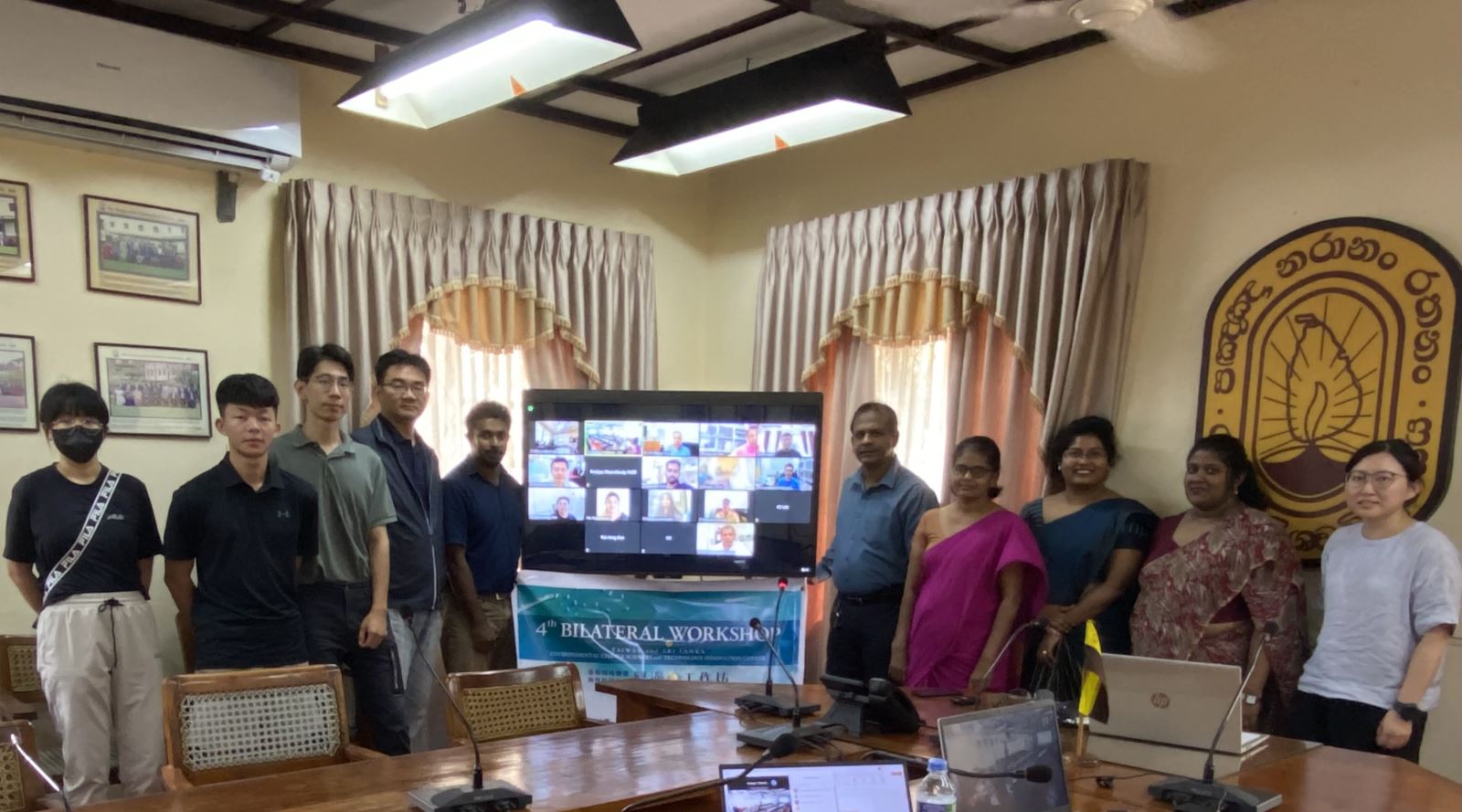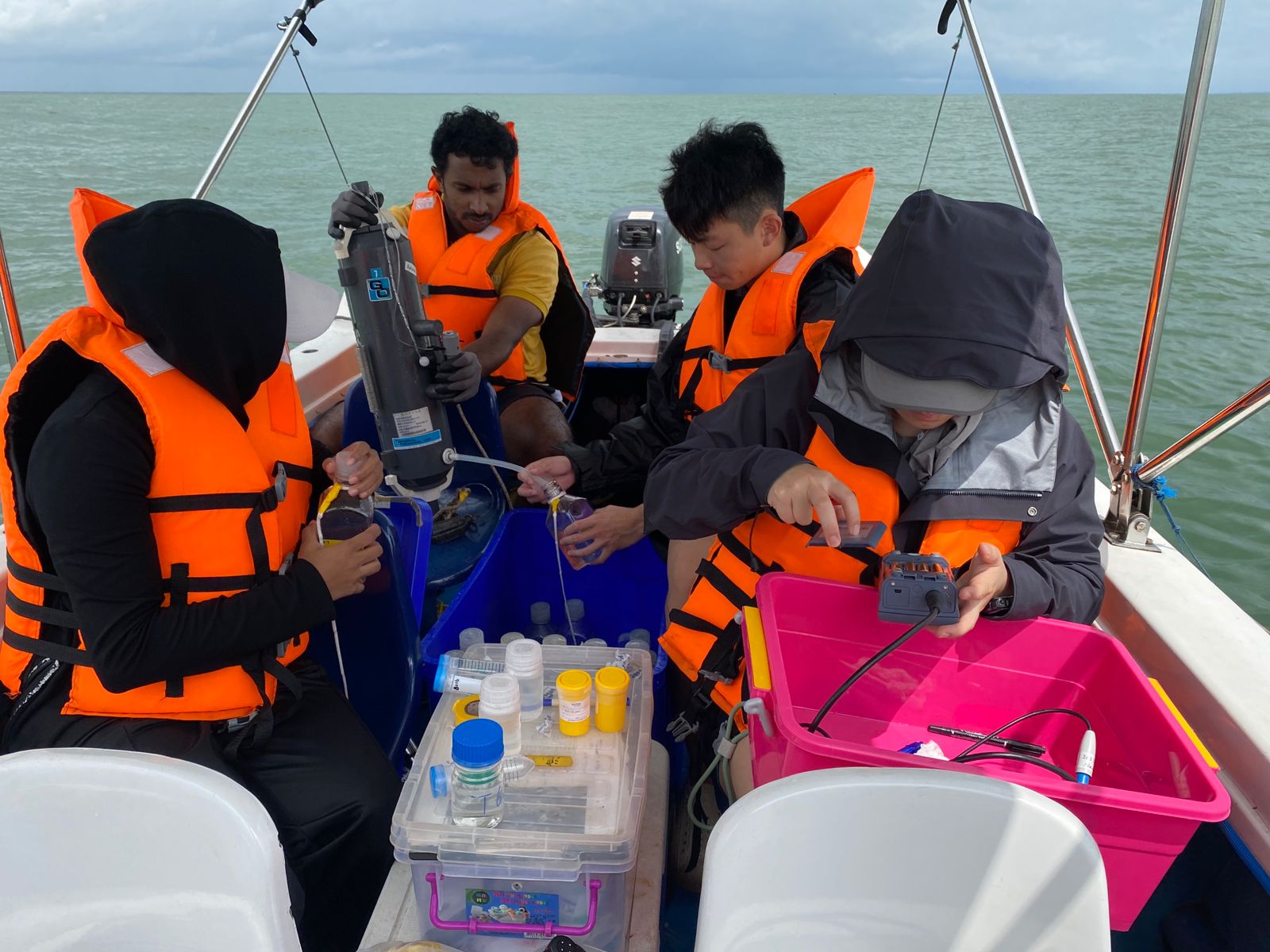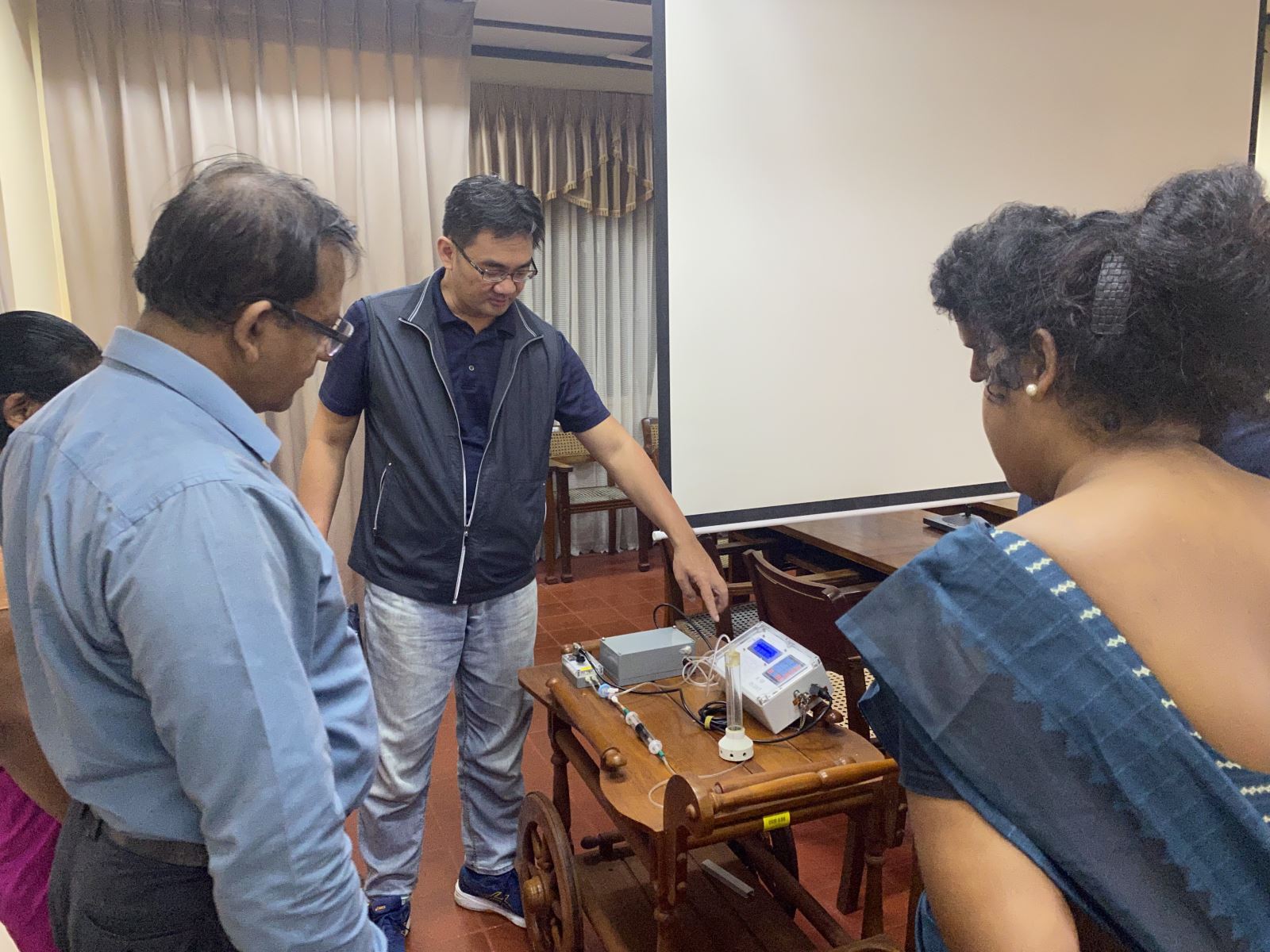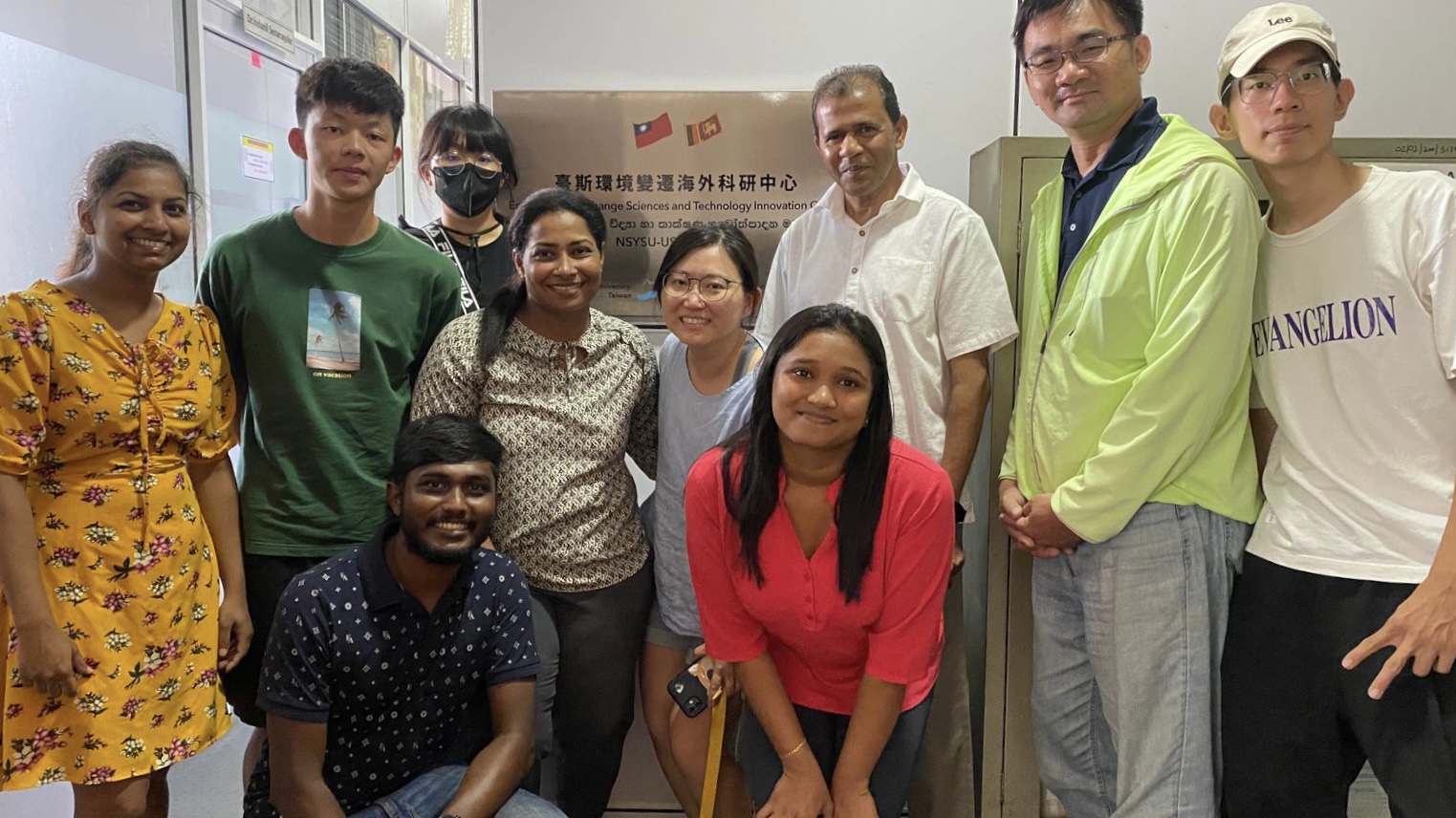On October 16, 2023, the Taiwan-Sri Lanka Center successfully hosted the fourth bilateral workshop of the Taiwan and Sri Lanka Environmental Change Sciences and Technology Innovation Center at the University of Ruhuna in Sri Lanka. This workshop marked the first physical and online hybrid event organized by the center's team in Sri Lanka since the end of the pandemic. Participants included scholars and students from the University of Ruhuna and the University of Sri Jayewardenepura in Sri Lanka, as well as scholars and students from the center's team. The main objectives of the workshop were to delve into current research findings and explore potential collaborative projects. Discussion topics encompassed the impact of post-pandemic tourist numbers on Sri Lanka's environmental water quality, the contribution of Sri Lanka's coastal ecosystems to blue carbon, the application of “autonomous buoy for inland and tidal water CO2” (ABiTC), and the research findings of a Sri Lankan doctoral student who utilized eDNA Metabarcoding Captures a Decline of Coral Diversity in Taiping Island after the Outbreak of Crown-of-Thorns Starfish. The entire event saw the participation of 30 individuals both physically and online, facilitating in-depth exchanges.
Simultaneously, our team invested 11 days in October for field and offshore sample collection and on-site investigation of water parameters in the context of the Taiwan-Sri Lanka bilateral collaboration. The survey areas included lagoons and coastal regions in the western and southern parts of Sri Lanka, with a focus on investigating Sri Lanka's coastal carbon cycling ecosystems. During the survey, we conducted real-time measurements of water quality parameters (including depth, water temperature, pH, salinity, dissolved oxygen, etc.). Additionally, for the first time, we brought along water quality monitoring probes (pH, salinity, dissolved oxygen), a CTD profiler, and an ABiTC system. The ABiTC system integrated a carbon dioxide sensor (K-30, NDIR), a self-designed air-water equilibration system, and a pH electrode for the inland water carbonate system. During the survey, we provided training to Sri Lankan team members on sediment, water quality sampling, sample pre-processing methods, and standard workflows. This activity not only facilitated in-depth academic exchanges between both sides but also planted seeds of hope in talent cultivation and future collaborative projects. It led Sri Lankan scholars and graduate students to operate personally, ensuring that bilateral scientific cooperation could take root and flourish.

Group photo of distinguished guests and speakers at the workshop.

Coastal sampling in Negombo.

Associate Professor Wei-Jen Huang explained to the local team the self-designed carbonate parameter monitoring system.

Group photo of Taiwan and Sri Lanka research team.